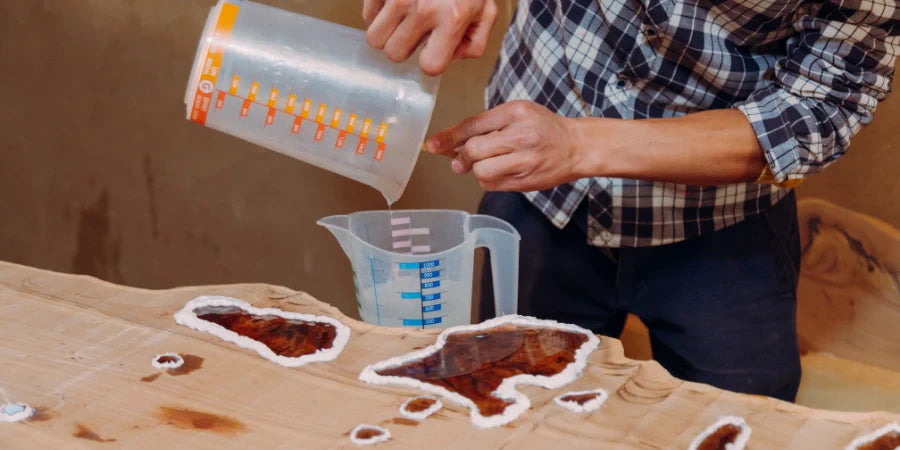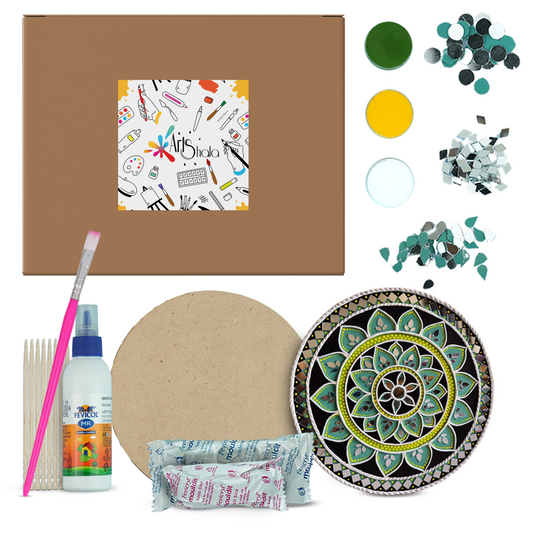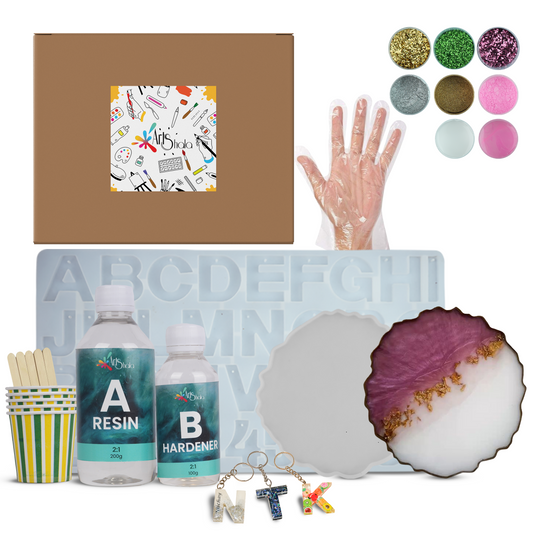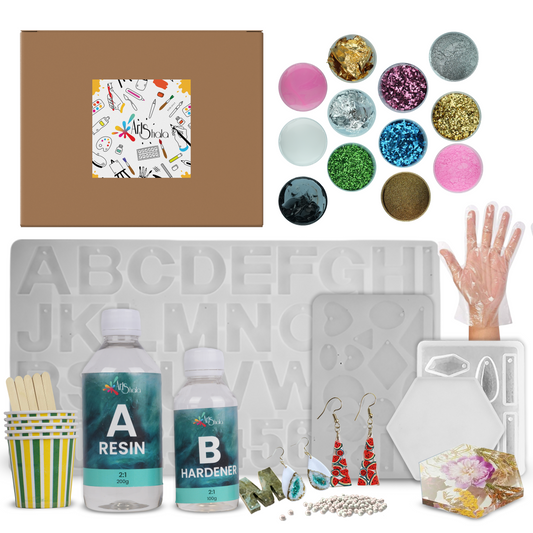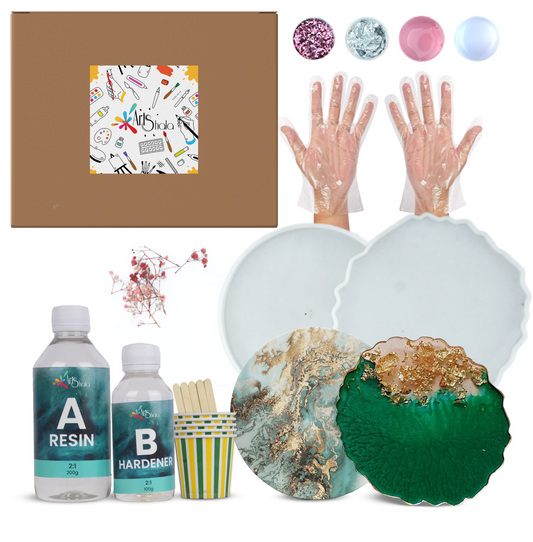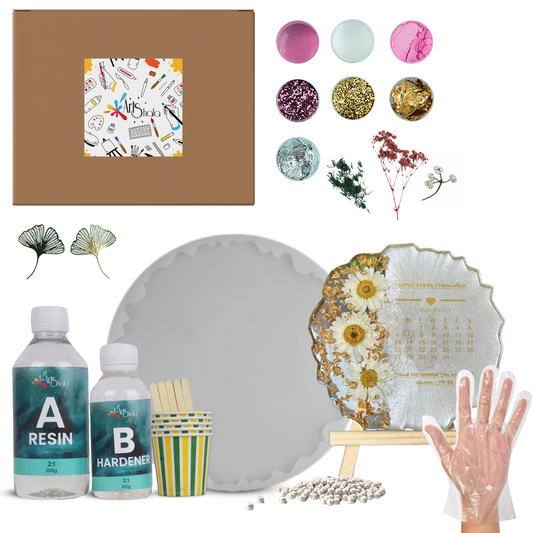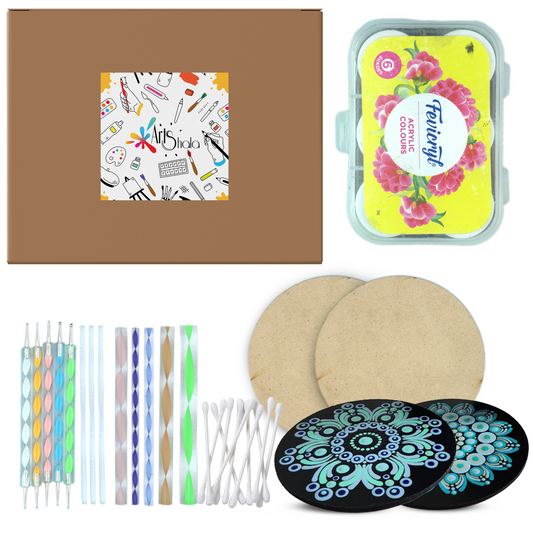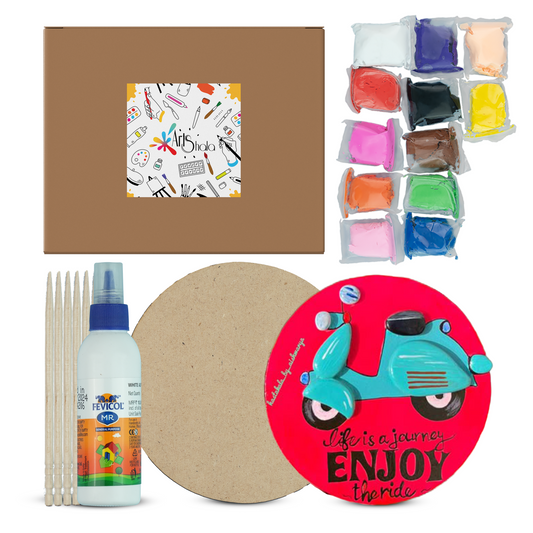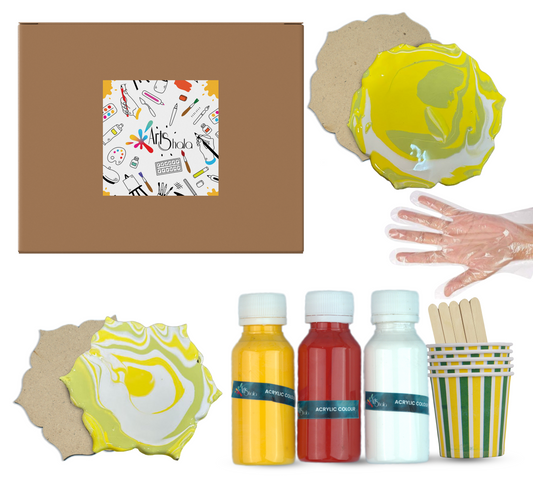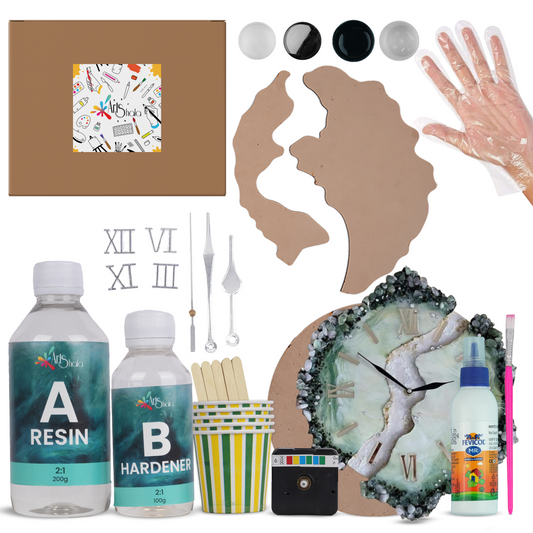Learn How to Clean Resin Tools Safely
Resin tools are essential for artists and crafters who work with resin. These tools include mixing cups, stir sticks, silicone moulds, and resin applicators. They play a crucial role in the resin art process, ensuring precise measurements, smooth surfaces, and beautiful finishes.
If you're new to resin art or want to improve your skills, joining a resin art workshop can provide valuable hands-on experience safely cleaning resin tools. This blog will discuss a step-by-step process for safely cleaning resin tools. We will also offer additional tips for maintaining your tools to ensure optimal performance and longevity. So, let's get started!
The Significance of Cleaning Resin Tools
Cleaning resin tools is essential for resin art and crafting. It has several important benefits:
- Preventing Contamination of Future Projects: Properly cleaning resin tools helps avoid mixing old resin with new batches. This keeps your future projects' colours and properties intact without any unwanted residue.
- Maintaining the Quality and Performance of Resin Tools: Resin tools like mixing sticks, silicone cups, and moulds can become less effective if not cleaned regularly. Resin build-up affects their smoothness and functionality, leading to imperfect results.
- Extending the Lifespan of Your Resin Tools: Regular cleaning and maintenance can significantly increase your resin tools' lifespan. By preventing hardened resin or other impurities from accumulating, you can keep your tools in good condition for longer.
Step-By-Step Guide: Cleaning Resin Tools Safely
Cleaning resin tools is important for maintaining their longevity and ensuring the quality of your work. Residue from previous projects can contaminate fresh resin, leading to unwanted imperfections in your artwork. Follow these steps to clean your resin tools safely:
Gather Necessary Materials
Before you start cleaning, gather these materials:
- Rubbing alcohol or acetone
- Disposable gloves
- Soft cloth or paper towels
- Small container for soaking
- A toothbrush or small brush for scrubbing
Remove Excess Resin
Use a plastic scraper or spatula to remove extra resin from your tools. Do this gently to avoid damaging them. It's best to do this while the resin is still soft.
Soak in Rubbing Alcohol or Acetone
Fill a small container with enough rubbing alcohol or acetone to cover your resin tools completely. Put the tools in the container and let them soak for 10-15 minutes. This will help soften and dissolve any remaining resin.
Scrub Gently
After soaking, take out one tool at a time and scrub it gently using a toothbrush or small brush. The bristles will help remove any stubborn residue. Make sure to scrub all sides of the tool well.
Rinse with Warm Water
Once you've scrubbed each tool, rinse them under warm water to remove any residue and cleaning agent. Make sure all the resin and cleaning solutions are washed away.
Dry Thoroughly
After rinsing, pat dry each tool using a soft cloth or paper towel. Make sure they are completely dry before storing them to prevent any moisture-related issues.
Safety First: Essential Precautions for Cleaning Resin Tools
When cleaning resin tools, safety should always be your top priority. Handling resin can expose you to harmful chemicals and fumes, so taking the necessary precautions is crucial. Here are some essential safety tips to follow when cleaning resin tools:
Wearing Protective Gloves and Gear
Before you start cleaning your resin tools, make sure to wear protective gloves. Resin can irritate your skin and cause allergic reactions, so protecting your hands from direct contact is crucial. Additionally, consider wearing safety goggles and a face mask to protect your eyes and respiratory system from any potential fumes or splashes.
Working in a Well-Ventilated Area with Adequate Ventilation
Proper ventilation is vital when working with resin. The fumes released during cleaning can be harmful if inhaled in an enclosed space. Ensure to work in a well-ventilated area, such as near an open window or under a fume hood. Use fans or air purifiers to improve air circulation and minimise fume exposure if necessary.
Proper Disposal Methods for Resin Waste Materials
Dispose of resin waste materials responsibly. Avoid pouring excess resin or cleaning solutions down the sink, as they can clog the pipes or harm the environment. Instead, follow local regulations and allow any leftover resin or cleaning solutions to cure fully before disposing. Consider using dedicated containers for resin waste and consult your local waste management guidelines for proper disposal methods.
Additional Tips for Resin Tool Maintenance
When it comes to caring for resin tools, a few additional tips can go a long way in ensuring their longevity and optimal performance. Here are some key points to keep in mind:
Regular Inspection: Regularly inspect your resin tools for any signs of wear, such as cracks, chips, or dull edges. Addressing any issues immediately can prevent further damage and maintain the effectiveness of the tools.
Proper Storage: Store your resin tools in a clean and dry environment to prevent dust, moisture, or other contaminants from compromising their quality. Consider using protective cases or pouches to keep them safe and organised.
Avoid Extreme Temperatures: Resin tools should be kept from extreme temperatures, as exposure to heat or cold can cause warping or other damage. Store them at room temperature to maintain their integrity.
Use the Right Cleaning Agents: When cleaning resin tools, use the appropriate cleaning agents that are compatible with the material. Avoid harsh chemicals that can corrode or degrade the tools over time.
Regular Maintenance Routine: Incorporate a routine for your resin tools, including cleaning and sharpening when necessary. This proactive approach can help prevent major issues and extend the lifespan of your tools.
Conclusion
Your safety should always come first while working with resin and its cleaning agents. Make sure to wear gloves and work in a well-ventilated area to avoid any potential health risks. Additionally, don't forget to take care of your tools! Regular maintenance is critical to ensuring their optimal performance and longevity. Clean them properly after each use, store them safely, and handle them with care.
If you're interested in learning more about resin arts and crafts, Contact Us on Arts Shala today, where you can connect with experienced artists, learn new techniques, and share your creations.

